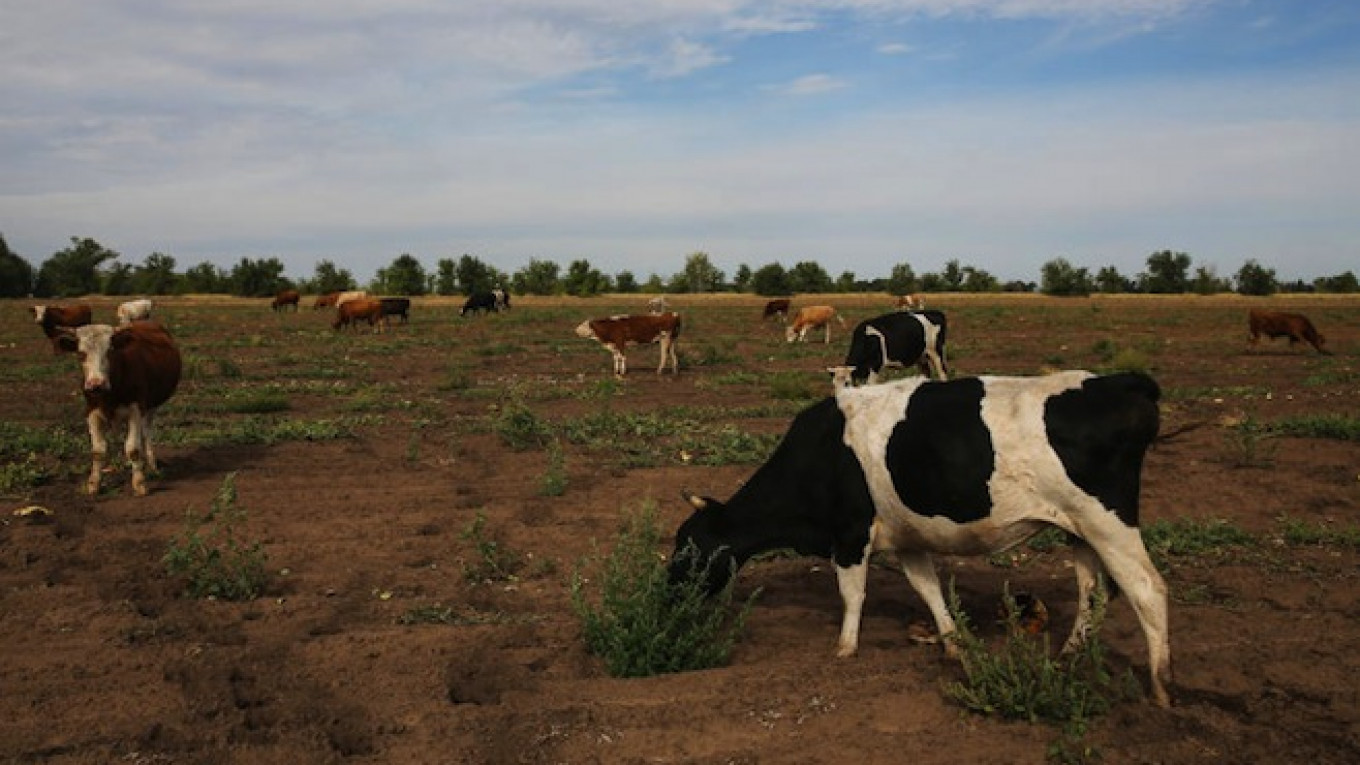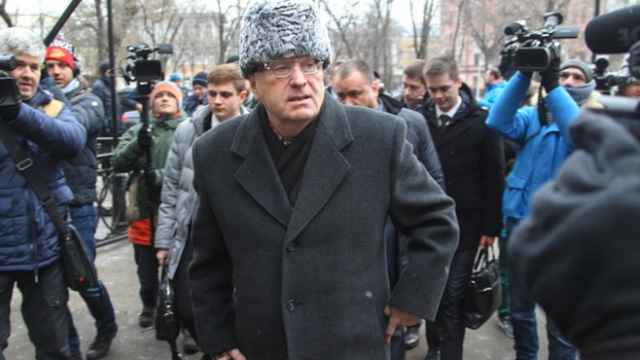As Russia's growing economic crisis weighs on farmers, some breeders appear to have found a miraculous solution — a new type of cow that doesn't need to be fed in the winter and can survive periods of not eating at all.
Known as the "Aita" — or "excellent" — the breed, which was developed over 15 years in the southern republic of Kalmykia, can make it through the winter months consuming only the food it finds under the snow, state newspaper Rossiiskaya Gazeta reported Tuesday.
"[The Aita] can gain weight even in extreme conditions, when bulls and cows of other breeds, such as the touted French Limousin, simply won't survive," breeder Vasily Barinov told the paper.
Even thick layers of ice across the ground won't stop the robust Aita, which can survive without eating for long periods — much like the camels that have long roamed the steppes of Kalmykia.
"The Aita can live for a long time on its own internal fat. Yes, it might lose weight, but still it will give birth and feed its young," Barinov said.
The highly positive report went so far as to declare the Aita an "anti-crisis" cow. According to Rossiiskaya Gazeta, special layers of fat between the cow's muscle fibers make its meat particularly delicious.
The breed has now been officially registered with the Agriculture Ministry, a move that coincides with Russia's efforts to boost domestic agricultural production and animal breeding in particular.
Agriculture Minister Nikolai Fyodorov said Tuesday that 12 billion rubles ($180 million) will go to founding and modernizing animal breeding centers in Russia through 2020, state news agency TASS reported.
Upping agricultural production has become a top priority for Russia since it banned a series of Western food imports last year in retaliation against sanctions over Moscow's role in the Ukraine crisis.
A ban on beef imports was especially problematic, as less than half of the beef sold in Russia was produced domestically at the time of the embargo.
Thanks to the bans and last year's steep devaluation of the Russian ruble, the cost of beef and poultry rose more than 20 percent in 2014, according to state statistics service Rosstat. Russia ended 2014 with 11.4 percent inflation, with most estimates seeing continued high inflation this year.
Contact the author at [email protected]
A Message from The Moscow Times:
Dear readers,
We are facing unprecedented challenges. Russia's Prosecutor General's Office has designated The Moscow Times as an "undesirable" organization, criminalizing our work and putting our staff at risk of prosecution. This follows our earlier unjust labeling as a "foreign agent."
These actions are direct attempts to silence independent journalism in Russia. The authorities claim our work "discredits the decisions of the Russian leadership." We see things differently: we strive to provide accurate, unbiased reporting on Russia.
We, the journalists of The Moscow Times, refuse to be silenced. But to continue our work, we need your help.
Your support, no matter how small, makes a world of difference. If you can, please support us monthly starting from just $2. It's quick to set up, and every contribution makes a significant impact.
By supporting The Moscow Times, you're defending open, independent journalism in the face of repression. Thank you for standing with us.
Remind me later.






